After the WW II Normandy landings on the 6th June 1944, temporary landing strips were constructed close to the beaches from which Hawker Typhoon aircraft could operate. Flying from these temporary strips the Tiffies were able to provide fast and close air support to the advancing allied troops. Unfortunately however, the aircraft started to experienced major problems with their Napier Sabre engines within just a few days of operating from these temporary landing strips. The Hawker Typhoon had a large air intake under the fuselage for the Napier Sabre II engine which, as well as air, ingested the coarse Normandy dust and sand. These particles entered the engine causing major abrasive wear in the cylinders and effectively grounding the aircraft. The rate of attrition was so high that the whole of the offensive had to rely on air support from the UK. The situation was extremely serious and the Air Ministry contacted D Napier & Son’s Flight Development Establishment at Luton to find a solution . . . QUICK!
Napiers reacted swiftly to the challenge and Mr Cecil Cowdrey, the General Manager of Napier Luton and Mr Bonar, designed, built and test flew a momentum type air filter that was 96% efficient in just ten hours. This temporary filter was built and fitted to the aircraft in a matter of days, which permitted the Hawker Typhoons to be used in the offensive on Caen and the breakout through the Falaise Gap. The filter was one of inventions critical in securing the success of the Normandy landings.
It is difficult to tie-down the exact date when these momentum filters were put into service after D-Day. We understand that the first airstrip in Normandy was constructed on 13th June 1944. Operations with Typhoons took one week to identify the dust problem in the Sabre engines (according to a report in the “AEROPLANE” magazine of 26th July 1946), so the fitment of the filters must have been from the end of June to early July 1944. The magazine then reported D. Napier and Son, Luton – Flight test facility “Designed in the morning, made in the afternoon and the prototype flown the same night, and were fitted in a week to all the Typhoons in Normandy”.
As a result, a letter was sent to the Chairman of D Napier & Son Ltd by Air Marshall Sir Arthur Coningham, 2nd Tactical Air Force. In it he thanked Mr Cecil Cowdrey and Mr Bonar and the staff at the Luton Flight Development Establishment for producing this deflector at such short notice. The letter further stated that it had been made possible for Typhoons to be operating once more from continental airfields and to give much stronger support to the British 2nd Army than at that time seemed possible.
One Comment
Comments are closed.

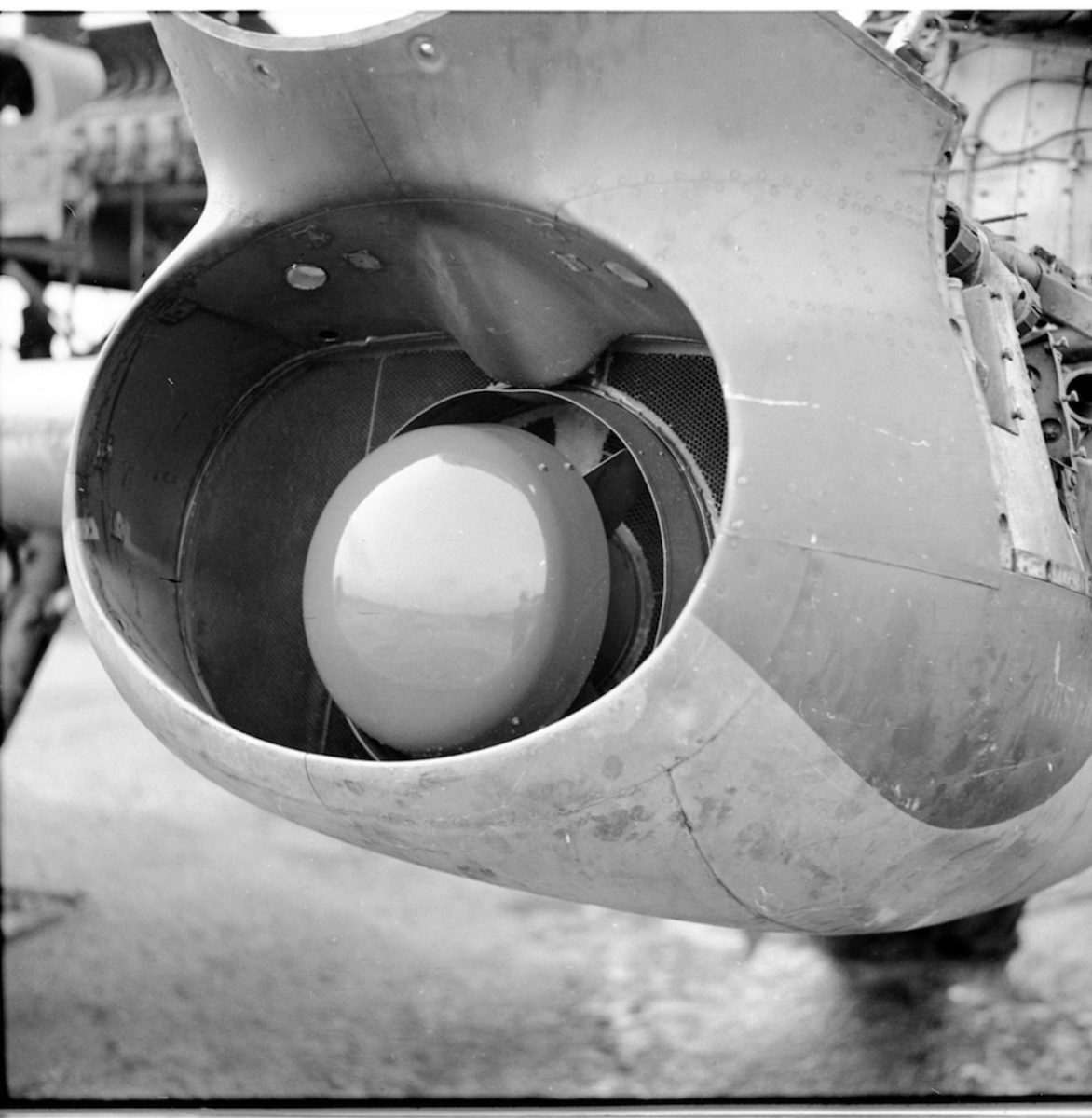
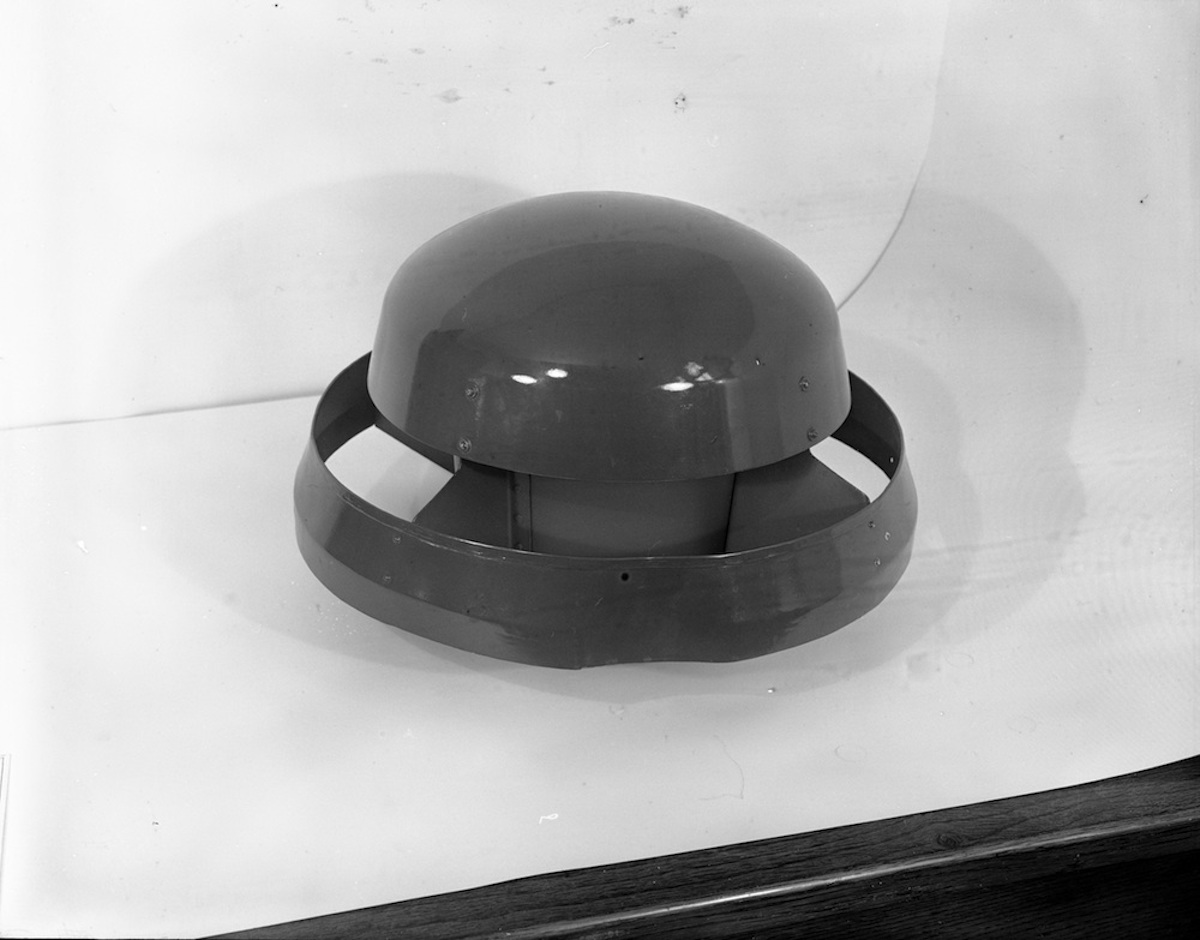
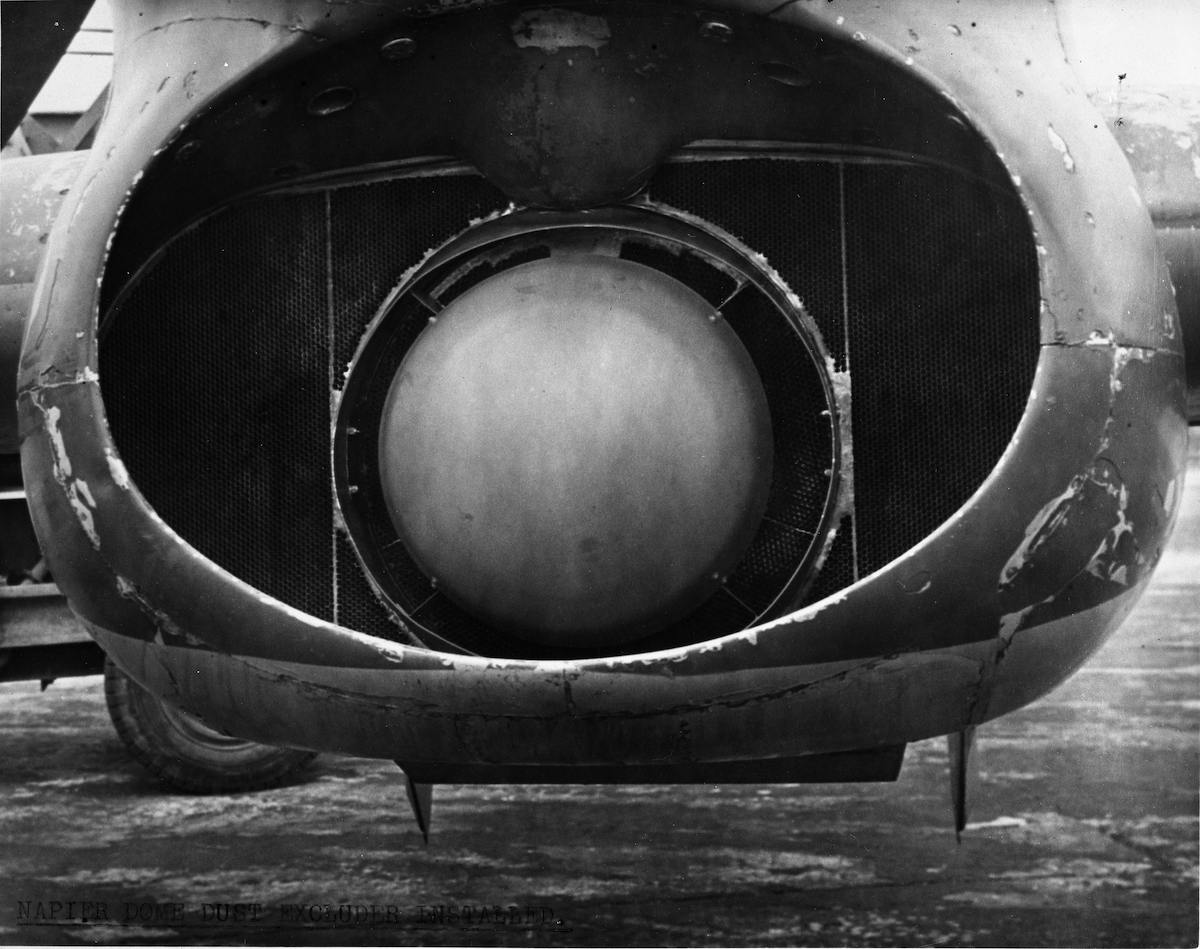
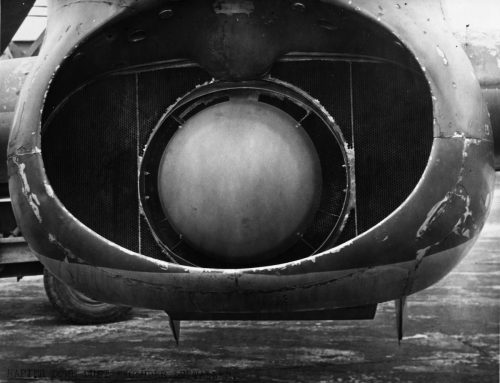
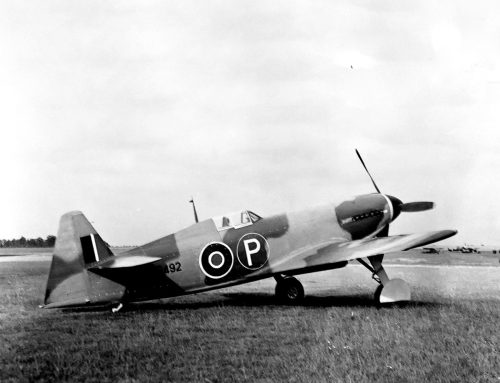
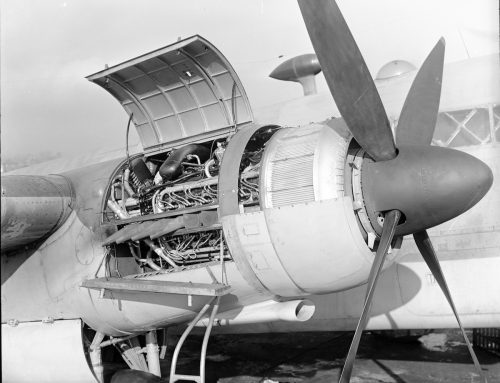

[…] section of a Hawker Tempest aircraft with an experimental exhaust and the aircraft fitted with the momentum air filter which was so successful during the Normandy Beach landings. You can clearly see the impressive […]